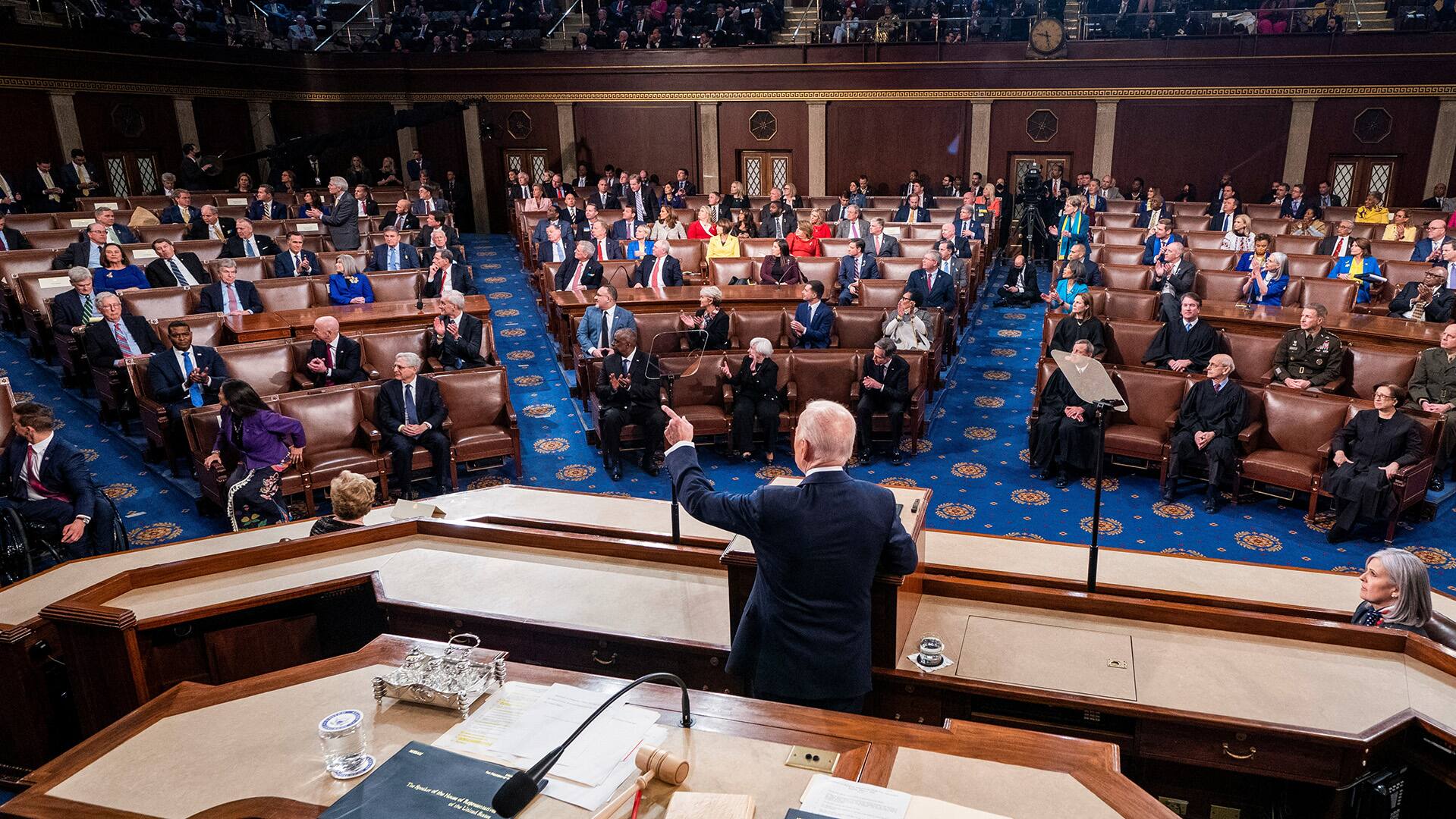It's time for America to stop letting the coronavirus "dictate how we live," President Joe Biden's White House declared Wednesday, outlining a strategy to allow people to return to many normal activities safely after two years of pandemic disruptions.
One highlight is a new "test to treat" plan to provide free antiviral pills at pharmacies to people who test positive for the virus.
The 90-page National COVID-19 Preparedness Plan spells out initiatives and investments to continue to drive down serious illness and deaths from the virus — about 950,000 Americans have died — while preparing for potential new variants and providing employers and schools the resources to remain open.
"We know how to keep our businesses and our schools open with the tools that we have at our disposal," said White House COVID-19 co-ordinator Jeff Zients. The announcement follows Biden's Tuesday night state of the union speech, in which he pointed to progress against the pandemic since last year and outlined some next steps.
A key component of the administration's plan to convince Americans that it is safe to resume normal activities is the increasing availability of the antiviral pill Paxlovid from Pfizer that has been shown to reduce the risk of hospitalization from COVID-19 by 90 per cent. By the end of the month, the administration says, one million pills will be available, with double that ready for use in April.
WATCH | Biden previews next federal pandemic steps in state of the union:

A White House official said the "test-to-treat" plan would initially roll out in hundreds of pharmacies across the country, including CVS, Walgreens and Kroger locations, and would soon expand beyond that. Those who test positive at the sites would be able to obtain the antiviral pills — Merck's pill has also been approved — for quick use, dramatically reducing the risk of bad outcomes.
One possible problem: The test-to-treat plan drew early concern from some pharmacists.
Anne Burns, a vice-president with the American Pharmacists Association, said pharmacies across the country have struggled with staffing issues in recent months. Pharmacists already doling out vaccines, prescriptions and health advice are worried about the extra time needed if they add more COVID-19 testing and treating.
"There's just a lot of considerations that go into this," she said. "It takes far longer than it takes to dispense most normal prescriptions."
Indoor mask guidance change
Biden, in his remarks Tuesday night, said that in addition to starting the new antiviral initiative, his administration would allow people in the U.S. to order another round of free tests from the government through COVIDTests.gov. Some 200 million tests out of a 500-million allotment in mid-January have still yet to be claimed.
The White House's strategy comes days after the Centers for Disease Control and Prevention loosened its guidance for when face masks should be worn in public indoor settings. Now more than 70 per cent of the country can safely remove masks indoors, the CDC says, and the percentage is expected to grow as cases continue to decline.
Many states led by Republican governors were already ignoring federal mask guidance. In Florida on Wednesday, a visibly annoyed Gov. Ron DeSantis admonished a group of high school students for wearing face masks at an indoor news conference, saying it was time to stop what he called "this COVID theatre."
"Honestly, it's not doing anything," DeSantis said.

The CDC still recommends masks indoors in Hillsborough County, where the news conference was being held. As well, an extensive study over a nine-month period in California residents just published last month found people wearing N95 or KN95 masks were 83 per cent less likely to test positive, with positive results (more than 50 per cent) for those who said they were wearing surgical or cloth masks.
Significant number of Americans have tested positive
While some states and localities have kept mask requirements in place, particularly for schools, Democratic-led New York ended that mandate on Wednesday, with Democratic-led California, Oregon and Washington jointly announcing earlier this week they will do so in the coming weeks.
"We are not going to just 'live with COVID.' Because of our work, we are no longer going to let COVID-19 dictate how we live," the White House said in its statement on Wednesday.
That statement comes despite the fact that the rate of death is still elevated, with an average of nearly 1,700 people dying in the U.S. each day. On Wednesday, more than 2,100 deaths were reported across the country, according to a Reuters tally.

Officials emphasize that the vaccinated are well protected, with most instances of serious illnesses and death in the U.S. occurring among those who are unvaccinated or who have not received a booster dose of vaccine. Some 69 per cent of Americans over five years of age are considered fully vaccinated, with exactly half of the eligible population having received a booster shot, according to CDC tracking.
As well, some 140 million Americans, or 43 per cent of the country, have now had COVID-19, conferring a least some short-lived amount of immunity. That estimate comes from a CDC surveillance program that tested nearly 72,000 blood samples that were sent to commercial labs from late December to late January. The samples were checked for antibodies from infection, and were distinguishable from antibodies that came from vaccination.

















